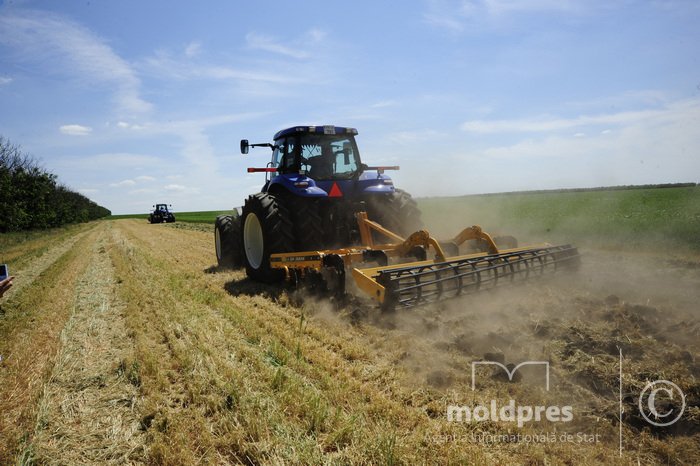Farmer Field Schools to be developed in five northern districts
16:57 | 14.08.2024 Category: Regional
Chisinau, 14 August /MOLDPRES/- With the funds provided by Switzerland, FAO will continue the implementation of Farmer Field Schools (FFS), an efficient instrument for acquiring the best agricultural practices among farmers.
In addition to the existing 15 FFS established nationwide, another 5 FFS specialized in cow milk production and conservative farming practices in cereal production will be developed in 5 districts in the northern part of the country.
Moreover, each Farmer Field School will be outfitted with a No-Till seeder designed for no-plow land processing. This sustainable agricultural practice not only supports environmental conservation but also bolsters farmers' ability to adapt to climate change. Large-capacity No-Till seeders will also be provided to the agricultural research institutions in the country.
Equipment will also be received by the 50 households trained within the Farmer Field Schools that produce and market milk. These households will be provided with milking machines to improve milking hygiene, enhance milk quality and facilitate working conditions.
Both small ruminant farmers and goat breeders will also benefit from this funding. FAO aims to strengthen the micro-cluster of shepherding from Cimișlia and Basarabeasca districts, created earlier through a joint initiative of UNDP and Switzerland, by providing modern equipment such as electric fences and milking machines to improve animal husbandry practices and enhance the quality of dairy products, thereby contributing to the sustainable development of the sector.
The Swiss Agency for Development and Cooperation is supplementing the funds allocated to the project Emergency support for agri-producers in the context of the socio-economic, climate and energy crisis with an additional US$1,155,000.
The project is implemented by the Food and Agriculture Organization of the United Nations (FAO) and the United Nations Development Programme (UNDP). The joint initiative was launched in 2022 and was funded with an additional $2 million by the Austrian Development Agency (ADA). In November 2023, Switzerland provided $2 million to the project.

